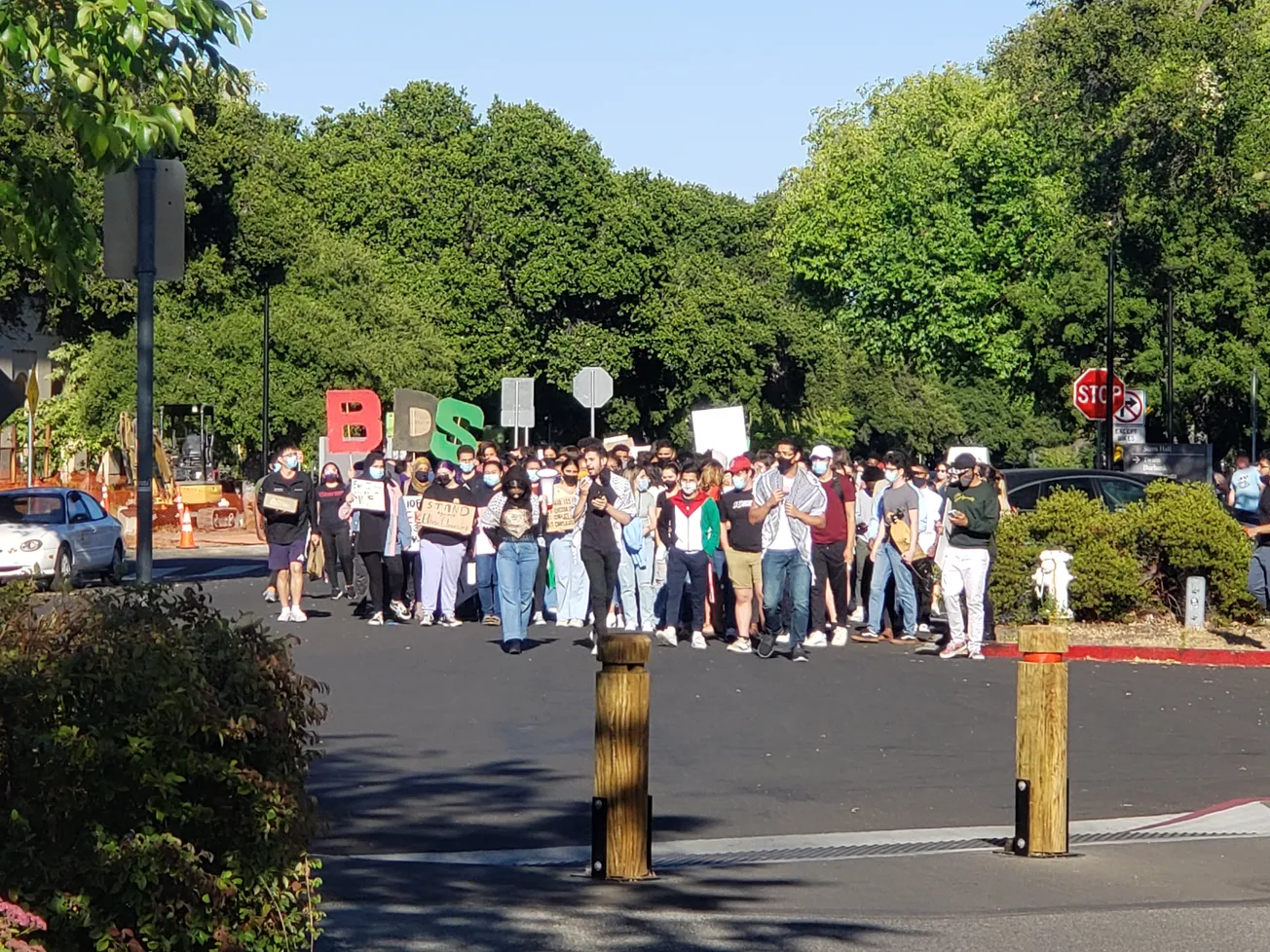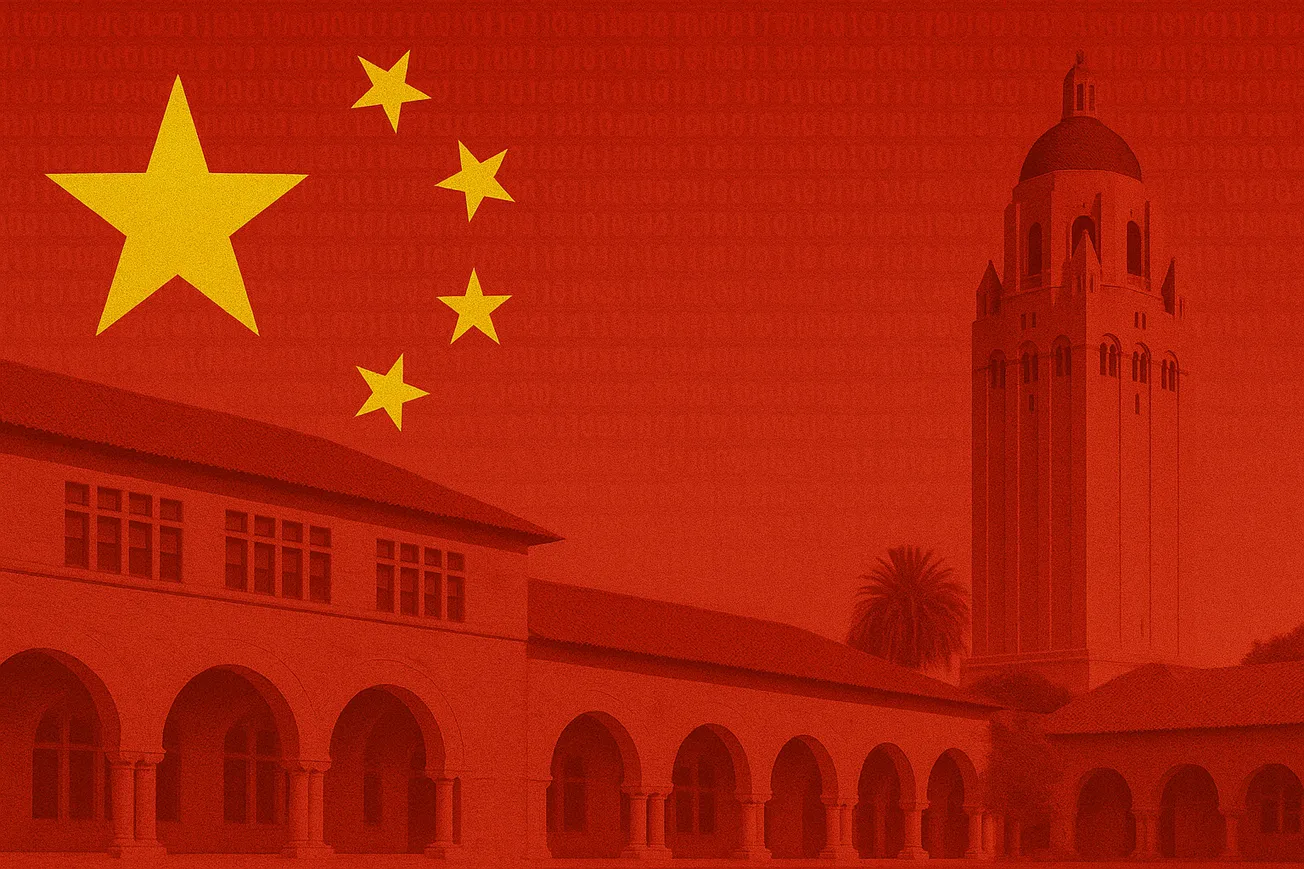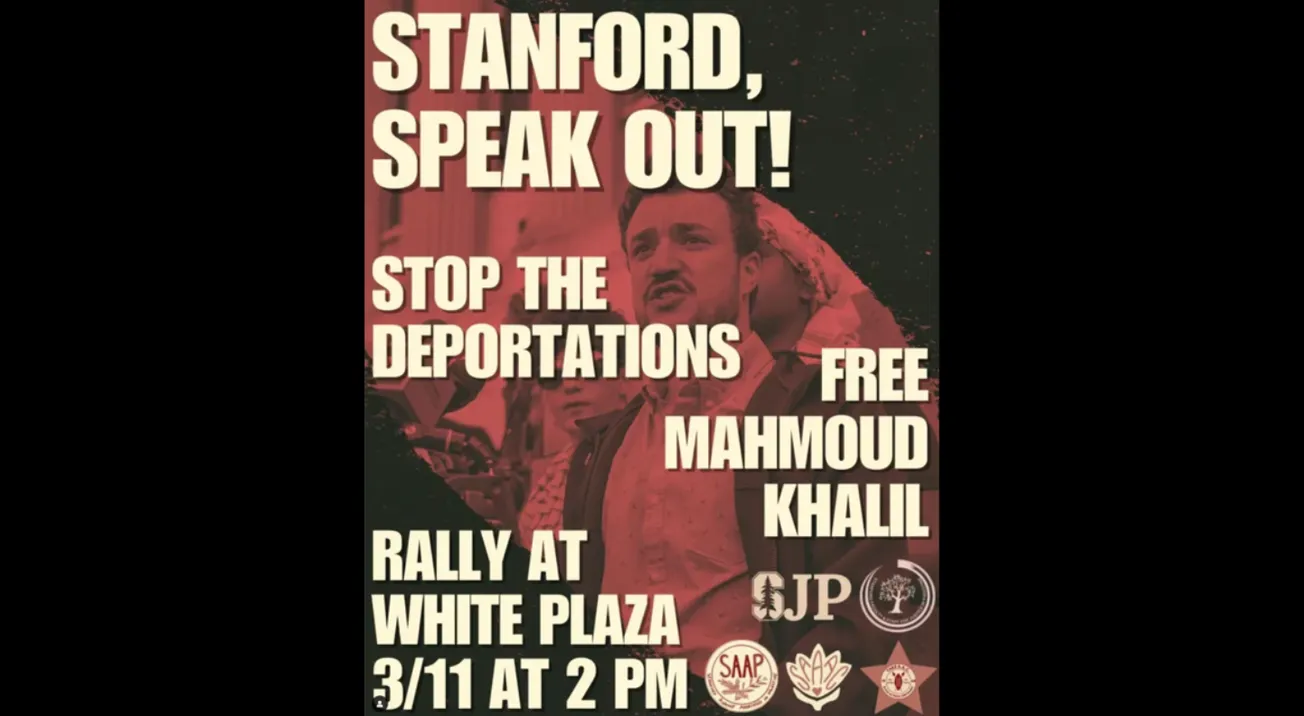Table of Contents
Shortly after 5:00 p.m. Sunday, about 150 Stanford students gathered on Stern Field for a “Free Palestine” rally. After learning about the event, which was widely advertised with flyers on campus, the Review dispatched a seasoned protest correspondent for coverage.
In attendance at the rally was ASSU Vice-President Cricket Bidleman, who was criticized by Palestinians and activists last week for an insufficiently one-sided ASSU statement. The ASSU statement was "controversial" because it expressed support for both Israelis and Palestinians. Rally speakers said the statement was “not enough.”
The first student speaker identified herself as a student athlete and a Palestinian who grew up in Jordan, but moved to the United States as a kid. She encouraged rally-goers to “reimagine” their language. Instead of using terms like “conflict” and “war,” she told people to choose “colonization” and “occupation.”
Decrying what she called the “violent occupation by Israel,” the speaker compared Palestinians to Native Americans. “Just as we stand on the the land of the Muwekma Ohlone people, Israel stands on the indigenous land of the Palestinian people.” It’s unclear whether the speaker was referring to Jews or Arabs as “indigenous” to the land. The Jewish People have a 3000-year history in Israel.
She also told students to remember the one-sided nature of the conflict, telling students to remember that “Palestine has no army, has no navy, no air force.” In fact, the Palestinian National Authority has a small security force of about 30,000 troops, mainly for civil purposes. Does anyone really think it would be a good idea to give the Palestinian Authority an operational air force, or Hamas a fleet of ships? We’ll pass!
The next speaker, from the Muslim Student Union, slipped up as he greeted students and wished them “good wealth… I mean health. Well, wealth is good too.”
He described his experience seeing the Al-Aqsa Mosque in Jerusalem, which he visited several times as a child. He recalled the presence of Israeli soldiers with automatic weapons protecting the entrance gates, which he said was shocking to see at a holy site. In another slip sure to cause controversy with the anti-police activists promoting the event, he said that he had “of course” seen American police officers “with pistols, which makes sense because they have to enforce the law, you know?”
The Israeli government provides security at the entrances of the Jerusalem holy sites, but does not control the sites themselves. Since 1948, the entirety of the Al-Aqsa compound has been under the custodianship of the Jordanian royal family and the Jerusalem Islamic Waqf. It is against Israeli law for non-Muslims to pray on the Temple Mount, which has been enforced since 1967.
The next speaker, a Jewish student, said that “We cannot allow the oppression and dispossession of the Palestinian people to continue in our name” and that supporting the Palestinian cause is “the only way to fight for the liberation of all the people between the river and the sea.”
At the rally, the Review spotted several sectarian signs, including one that said “You Can’t Beat a People Protected by GOD.”
The graduate student from Gaza organizing the event said that “we can’t keep tiptoeing around it, we need to call it what it is: ethnic cleansing.” He also likened the treatment of Palestinians to “people of color in the United States” and “all oppressed peoples worldwide.”
He concluded by offering several “action items” for attendees to take with them. First, he said, it was very important to post on social media and speak to one’s friends and family. He then told attendees to “...divest yourself… and realize how you may be helping in the oppression.” But most importantly, attendees must support organizing on campus to divest Stanford from Israel.
As the rally finished, attendees began to walk toward the Oval, chanting familiar refrains all the way. Here’s a few we heard:
“When people are occupied, resistance is justified!”
“Hey hey! Ho ho! The occupation has got to go!”
“From the river to the sea, Palestine will be free!”
The rally likely foreshadows a revival of the BDS movement on campus and a new effort to pressure Stanford to divest its endowment of Israeli companies. The last push fizzled in 2015 when the Trustees rejected student calls (including an ASSU resolution) for divestment. Among students, energy certainly seems to have increased. But activists face an uphill battle with administrators and Trustees, and the Review hopes the latter will hold the line against this new wave of anti-Israel organizing.









